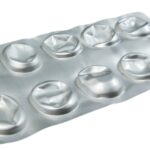A review of the proposal to defund NPS MedicineWise may have backed it, but not without some reservations.
The Morrison government may have underestimated the risks involved in moving NPS MedicineWise’s educational and medicines stewardship programs to a government body, according to an independent review.
Released late last week, the review by Deloitte concluded immediate actions to mitigate risk were needed if a redesigned Quality Use of Medicines program were to avoid gaps in services after NPS MedicineWise is shut down at the end of the year.
The review was commissioned to assess a 2022-23 budget measure authorising the redesign of the quality use of diagnostics, therapeutics and pathology (QUDTP) program. Under the plan, the program’s stewardship functions would be moved from NPS to the Australian Commission on Safety and Quality in Health Care (ACSQHC).
The education programs which NPS runs for health professionals and consumers are set to move to a contested funding arrangement.
Health Minister Mark Butler last month accepted the review’s conclusion that “the policy intention of the 2022-23 Budget Measure is appropriate for the delivery of the QUDTP”.
However, Deloitte was also concerned the market for an educational services provider had not yet been tested. “Therefore, it may not have the capacity, capability or willingness to deliver the program of contestable functions to the same or better quality,” the review said.
While the medical colleges – as well as NPS MedicineWise – were proposed as possible leaders of educational activities, the design and distribution of these activities has not been clarified.
The failure to find an appropriate service provider would have significant implications.
“The quality, capacity and coordination of educational program delivery will be compromised,” the review said. “Important educational activities will not be undertaken to the same degree and reach as previously provided, limiting the impact of QUM activities.”
Deloitte was particularly concerned about the future of Australian Prescriber, currently published by NPS MedicineWise.
“It is unclear who will have responsibility for its preparation and publication in the near to medium term,” the review found. “With a distribution list of over 100,000 clinicians and a source of current medication and therapeutics information, it is essential there is a plan for its continued contribution to the Australian healthcare landscape and knowledge base.
“At present there is no equivalent publication available in Australia, which could have flow on impacts to the prescribing and dispensing of medications in line with the principles of QUM.”
The report was also concerned that NPS MedicineWise was only reaching between 27% and 33% of GPs per individual QUDTP program.
“It may reasonably be expected that this reach should have been larger given the standing of NPS MedicineWise,” the report said.
That is “a fair finding, but it’s a little bit misleading”, NPS MedicineWise CEO Katherine Burchfield told TMR.
“Per program we reach that level of GPs, but it’s also about reaching the critical mass of GPs with a program to achieve behavioural change. If you look at the change that was achieved through those programs, we’ve hit our objectives in terms of outcomes.
“And if you look at reach across a given year, it’s actually more than 50% of Australia’s GPs. And then if you add in things like practice reviews and the other tools we use to reach GPs – other than our educational visiting programs, which is what the Deloitte report is referring to – we actually reached 100% of GPs.
“The review doesn’t tell the whole story around reach.”
While Deloitte also pointed out in the review that “NPS MedicineWise appears to be meeting performance against the KPIs/metrics in the Grant Agreement with the exception of the MBS savings target”, Ms Burchfield said this too didn’t tell the whole story.
The organisation might not have made the MBS savings target in the past financial year, but over the previous four years it exceeded its target, she said.
“The savings go up and down based on the programs we run and whether the department approves programs that look at diagnostics – which is where we get the Medicare savings – or whether we have programs that are more PBS-focused,” Ms Burchfield said.
“We haven’t had a lot of new work coming in around diagnostics more recently so we were under target for the Medicare savings this year. We did provide further information to Deloitte on that after the report was released. It’s not something they followed up with us before they made that statement. And we thought it was a bit of a misrepresentation.
“We have all the evaluation reports with those figures, as well as showing how the calculations to get to that figure were done. So if they’d asked us for that information, we could have provided it and we did provide it after the report was released, but they chose not to adjust the report.”






